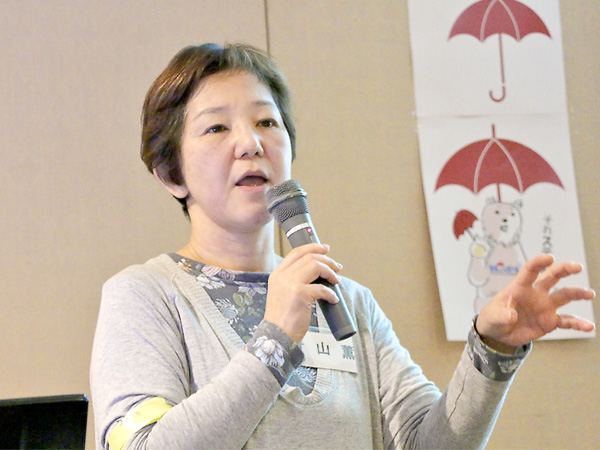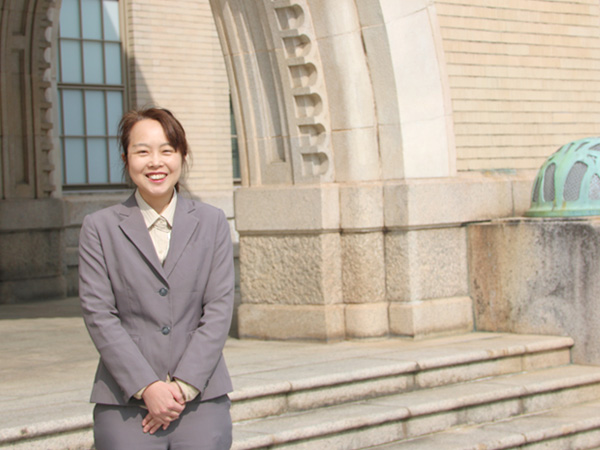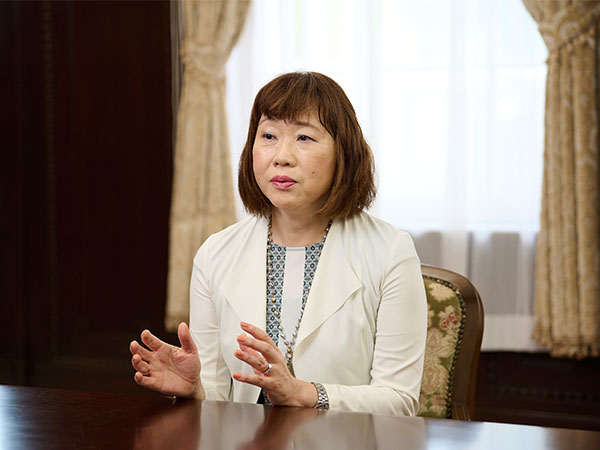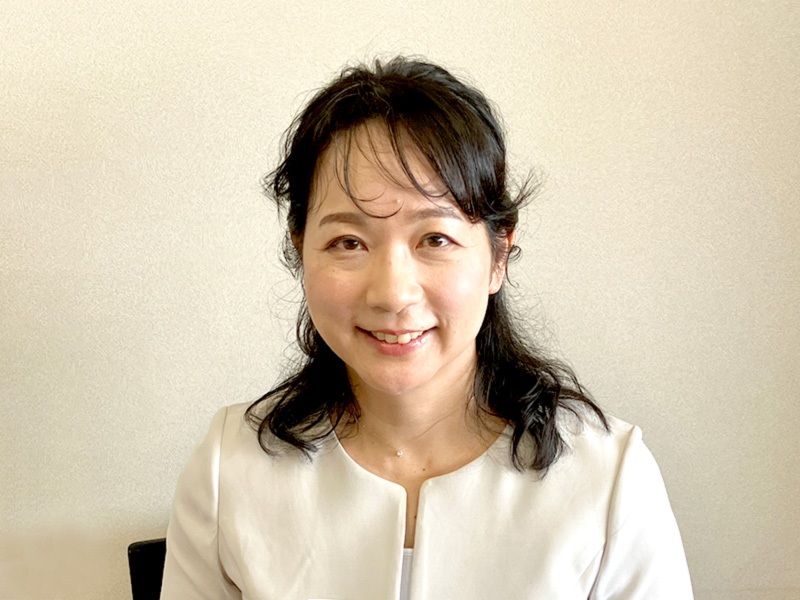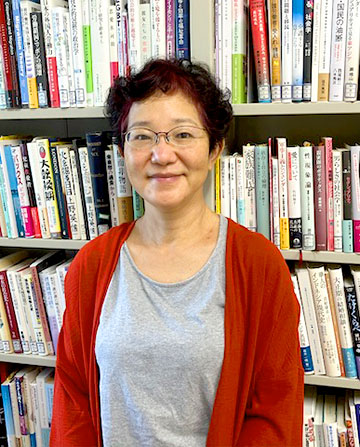
Although ‘diversity’ and ‘inclusion’ have become buzzwords in Japan, society still lags behind in terms of gender equality. Japan was ranked 116th out of 146 countries in the World Economic Forum’s Global Gender Gap Report 2022, which compares countries in terms of their gender equality. It is the lowest ranked out of the G7 nations. This is slightly higher than last year’s position (120th out of 156 countries) however this is still low compared to other countries in Asia such as China, South Korea and Myanmar. The continuing coronavirus pandemic has highlighted difficulties facing women, and shown that efforts to protect LGBTQ people from discrimination are also lagging behind. Why is gender equality not making headway in Japan? We asked Professor AOYAMA Kaoru (Graduate School of Intercultural Studies), who researches society’s systemic discrimination towards sex workers and sexual minorities.
One of the worst gender gaps in the world
Japan’s position remains low in gender gap index comparisons with other countries worldwide.
Professor Aoyama:
That’s true. The index clearly shows that Japan has neglected this issue, and that some aspects have been neglected intentionally. This index is useful for publicizing the issue, however, there are also problems with it. One of these is ‘gender orientalism’; the measurement for the index reflects Western middle class-centric values. Therefore, I think it is more important to achieve substantial equality in Japanese society rather than just being happy if Japan moves up a few places on this index.
Isn’t the current coronavirus pandemic widening the gap between men and women? It is having a severe impact especially in terms of women’s unemployment and poverty.
Prof. Aoyama:
If we look at men and women, then it is clear that women have been more disadvantaged during the pandemic. However, this is only because existing disparities became more visible. People who face discrimination in everyday life face even more discrimination during emergency situations such as disasters, and this has also become apparent during the coronavirus pandemic.
Woman are in the overwhelming majority of those who have been dismissed or forced to quit their jobs due to the fact that many women are in irregular employment and bear the heavy responsibility of unpaid labor such as housework. Furthermore, there are cases where the company or business itself may have collapsed; this tends to be companies operating in unstable industries with unstable employment consisting of more women than men.
Hardships for women caused by the coronavirus pandemic
The state of emergency declarations aimed at reducing the spread of the coronavirus led to temporary closures, particularly impacting female-dominated service industries.
Prof. Aoyama:
My specialization is research on sex work and in actual fact, the people working in the sex industry have been among those hardest hit by this situation. Tokyo Governor Koike voiced suspicions that ‘nightlife areas’ are sources of coronavirus infection and Osaka Mayor Yoshimura labeled them ‘epicenters’. Of course, places providing sexual services are not completely innocent of this charge because physical contact is involved. However, even though there are other services involving touching people, which carry the same danger of spreading coronavirus, the spotlight has been shone on the sex industry emphasizing that it is at fault, which is a form of scapegoating.
This was the usual discrimination against this stigmatized work coming to the fore during the state of emergency. The existence of this social stigma has made it easy for officials to shift the responsibility. It has also made it easy for the public to accept this labelling: ‘So that’s why the sex industry should be put out of business’.
What exactly has happened to the sex industry?
Prof. Aoyama:
There are people who are seriously struggling to get by. The Japanese government provides a sustainability subsidies to small-scale businesses and even single-person businesses who are experiencing economic difficulties due to the pandemic, however people working in the sex industry were initially excluded from applying. Sex workers and the organizations that support them made complaints and a considerable amount of public opinion on the internet and other places was also supportive of the sex workers. Then, eventually individual sex workers got back the right to apply for the subsidiary. However, the subsequently introduced subsidiary for businesses also excluded those who ran sex industry-related premises. This lead to a sex shop owner taking the matter to court and in June 2022, the Tokyo District Court’s verdict upheld the government’s decision and refused the compensation claim. The case is currently being appealed to a higher court.
At the trial, it was argued whether or not the government’s regulation that excludes the sex industry from the sustainability subsidies is a violation of the constitution. Professor KIMURA Souta, an expert in constitutional law from Tokyo Metropolitan University, and others submitted written arguments stating that not providing the subsidy goes against legal equality and is therefore unconstitutional. I also submitted a written argument connecting this to a historical cycle of unfair discrimination against the sex industry by the Japanese government. Even in the present day, the government bashes the sex industry whenever some kind of emergency situation occurs because, they say, it really shouldn’t exist. But it is the government that made the sex industry legal and at the same time stigmatises against it, so not providing sustainability subsidies to this particular industry is an extension of what the government has already been doing. First and foremost, excluding any business from public subsidy that abides by regulations, supports many people’s livelihoods and pays taxes is occupational discrimination towards these people.
Incidentally, a bill that aims to eliminate discrimination against LGBTQ with the Tokyo Olympic Games and Paralympics in mind was discussed in the 2021 Diet. This bill was based on the Olympic Charter that forbids discrimination on the grounds of sexual orientation. In the end, the conservative faction of the LDP (Liberal Democratic Party; the ruling political party in Japan) were against the bill and it was shelved. Japan is also behind when it comes to measures for LGBTQ people.
Prof. Aoyama:
I live with my same-sex partner so I also talk about LGBTQ (by this term I mean ‘sexual and gender minorities’) matters as a member of this community. I think that the law banning LGBTQ discrimination that was proposed by the opposition parties should be passed. Regarding the LDP’s bill to raise public awareness of LGBTQ, I can see that some aspects of the bill are not bad intention-wise when looking at the aims of committees in the party. However ‘public awareness’ does not carry legal enforcement. Right now, there are people facing social and economic disadvantages due to clear discrimination. Isn’t it the role of the government and the law to stop these kinds of discrimination?
The goal of the Public Awareness Bill was to create a society where it is not necessary for sexual/gender minorities to come out. The Bill doesn’t specify anything concrete, it merely calls for increased understanding. This does not shake up the positions of minorities and the majority, and therefore changes nothing. From a minority viewpoint, it must be clearly stated that ‘this kind of discrimination is unacceptable and illegal’ and ‘this kind of differential treatment is unacceptable and illegal’ for the current situation to improve, however, there was nothing about this in the Public Awareness Bill. Only what the majority side (who are not discriminated against) understood as clear discrimination was acknowledged. This does not move Japan any closer to equality at all. It’s like an unfunny comedy show.
What is your assessment of the opposition’s bill to ban discrimination against LGBTQ?
Prof. Aoyama:
Even though the bill bans discrimination against sexual and gender minorities, it has its limits because there are many other types of discrimination. Despite this, I think it would be good to have a discrimination ban and even better if there were penalties for discrimination. There are no penalties for hate speech, however, there has been a reduction in hate speech on the streets ever since a ban was passed so I think that it had an effect. I think that if a law banning discrimination against LGBTQ was passed, it would definitely have some kind of positive outcome.
The deceptive idea of the ‘Traditional Family’
Recently the concepts of ‘diversity’ and ‘inclusion’ are becoming widespread. Since the Abe administration (2012-2020), policies to improve women’s participation have been introduced. However, the government has put off introducing legislation to prevent LGBTQ discrimination, and a system of optional separate surnames for married couples.
Prof. Aoyama:
Politicians agree in principle but disagree on the details. It is hard to understand how much of what politicians say is for the benefit of society. Recently, relationships between the former Unification Church and politicians are increasingly coming to light, and I really hate this. Ultimately, if politicians think that anything goes when it comes to gaining money and votes, then the people lose the motivation to stand up for reason. Questioning the purpose of governance and its ideals will also not get through.
The opposition against the optional separate surnames and preventing LGBTQ discrimination probably comes from the beliefs of the former Unification Church and Nippon Kaigi (Japan’s largest far-right, ultra-conservative non-governmental political organization). However much you make arguments based on logic and principles, nothing will get through in this situation.
An often-repeated argument for not changing these laws and systems is that doing so would ‘Damage Japan’s traditional family system’.
Prof. Aoyama:
Actually, ‘Japanese family values’ and ‘traditional family’ are new ways of thinking. For example, in the Edo period (1603-1867), divorce and remarriage were common, as was having sex with various people regardless of marriage. In the latter part of the Edo period, the rules regarding chastity, monogamy and sex after marriage, all particularly for women, became increasingly influential. But these were the rules of the Samurai class, which made up only 10% of the population, to ensure the paternity of the heir. These ideas were combined with the sexual norms of Victorian England and carried over to the Meiji period (1868-1912) and beyond. To call this ‘tradition’ is very opportunistic.
Solidarity between genders and sexualities
How should we go about making diversity and inclusion a reality?
Prof. Aoyama:
I think there is a great danger that efforts towards ‘diversity’ will end at ‘promotion of understanding’ with lipservice to the idea that ‘everyone is different, everyone is good’, and no concrete improvements will be implemented. We should look at the fact that it is not only LGBTQ issues that have been ignored; discrimination against women, etc., still remains. It is a problem if nothing is done to tackle this. However, I think there is a lasting negative legacy of only women being focused on the women’s movement and women’s studies. Especially in societies like Japan where women’s status has remained low, women’s movement haven’t had much leeway to extend the scope of the movement on issues related to discrimination against women to include issues related to discrimination against sexual/gender minorities, and this has arguably impeded solidarity. However, all of us should consciously work together to ensure that we don’t discriminate or aren’t discriminated against due to gender or sexuality.
As a university, what efforts should we make?
Prof. Aoyama:
From a researcher’s perspective, I believe that you should accumulate research in order to convey the aspects that should be communicated. In the future, I would like to have an effect on policy making. As for education, I can talk directly to students about politics of sex, sexuality and gender. This is so that people of all genders and sexualities can think about connecting their way of life to society. In this way, I think I must do whatever I can in this position. I have been working at Kobe University for 12 years and compared to 10 years ago, positive responses to LGBTQ and gender equality have increased greatly and student awareness has definitely improved.
Kobe University has recently set forth a ‘basic policy and guideline on diverse sexualities and genders’. In addition, the university has also joined the UNESCO Chairs program, an inter-university network which promotes borderless education and research activities as well as knowledge-sharing. As part of this, Kobe University is conducting research and seminars on the theme of considerations made for gender and vulnerability in disaster preparation measures. However, there is still a low percentage of women with professorships or leadership positions (such as deans and presidents) at Kobe University. On the other hand, the Graduate School of Intercultural Studies’ dean is a woman, and 40% of the faculty and 70% of the students are women. This is something we – both male and female staff members at the graduate school – take pride in.
The history of the ‘third gender’

Please tell us about your next research topic.
Prof. Aoyama:
LGBTQ and gender are imported concepts so this creates a bottleneck which makes it hard for Japanese society to become familiar with them. There are also big differences in the level of awareness and understanding of these concepts between generations. Some people cannot accept the sentiments (of LGBTQ people etc.) even if they understand the logic. I am concerned about this detachment. I was very aware of this when working as one of the editors for the book ‘Southeast Asia and “LGBT” politics’ (‘東南アジアと『LGBT』の政治’, published in 2021 by Akashi Shoten). Southeast Asia had a completely different gender system up until around 500 years ago. It was far more complex and diverse than the current gender system. This is not only the case for Southeast Asia; similar systems were found among the native peoples of North and South America, to the east of Europe, and in Northeast Asia. In Western Europe power was centralized early on and the current gender system put in place, therefore it seems there is not much remaining evidence (of alternative systems) but they probably did exist.
The most easily understandable example is people who are called ‘the third gender’, such as the hijras in India. Among the Native Americans, they have been called ‘two spirit’ and nowadays we would refer to them as transgender. These people have existed ‘normally’ in society and there have also been cases where they have held positions close to royalty. You could say that this is due to people’s perspective on the world in these time periods but such examples are being found in many places throughout history. It is actually our ignorance that makes us say that gender diversity is a recent thing. The idea of only 2 genders is a result of centralisation of power, modernization, Westernisation, etc. With the help of historians, I would like to continue research into gender diversity across regions including Southeast and Northeast Asia. This is my new research topic.
Researcher Profile:
- AOYAMA Kaoru:
- After working in publishing, Professor Aoyama obtained a Master’s degree from the University of Warwick in England, studying how the North and South divide and wealth disparity relate to gender. Upon returning to Japan, she volunteered at the Asia-Japan Women’s Resource Center (now an international NGO), where she delivered provisions to a Thai woman imprisoned for murdering a bar owner who forced her to work as prostitute in Japan. This experience prompted her to research sex work, human trafficking and migration. After working at a civil society organization, she recommenced her research at the then Department of Sociology at the University of Essex, publishing her doctoral dissertation on sex workers who migrate to other countries. While carrying out research and surveys on the sex industry she realized that ‘It wasn’t enough just to listen to each person’s story. Our research should aim to improve people’s lives.’ From the standpoint of those who are ‘burdened with the stigma’, she continues to make proposals about regulations on prostitution and preventing coerced appearances in pornographic videos. Recently, Professor Aoyama is also engaged in LGBTQ support activities, such as seminars led by Kobe City employees.





